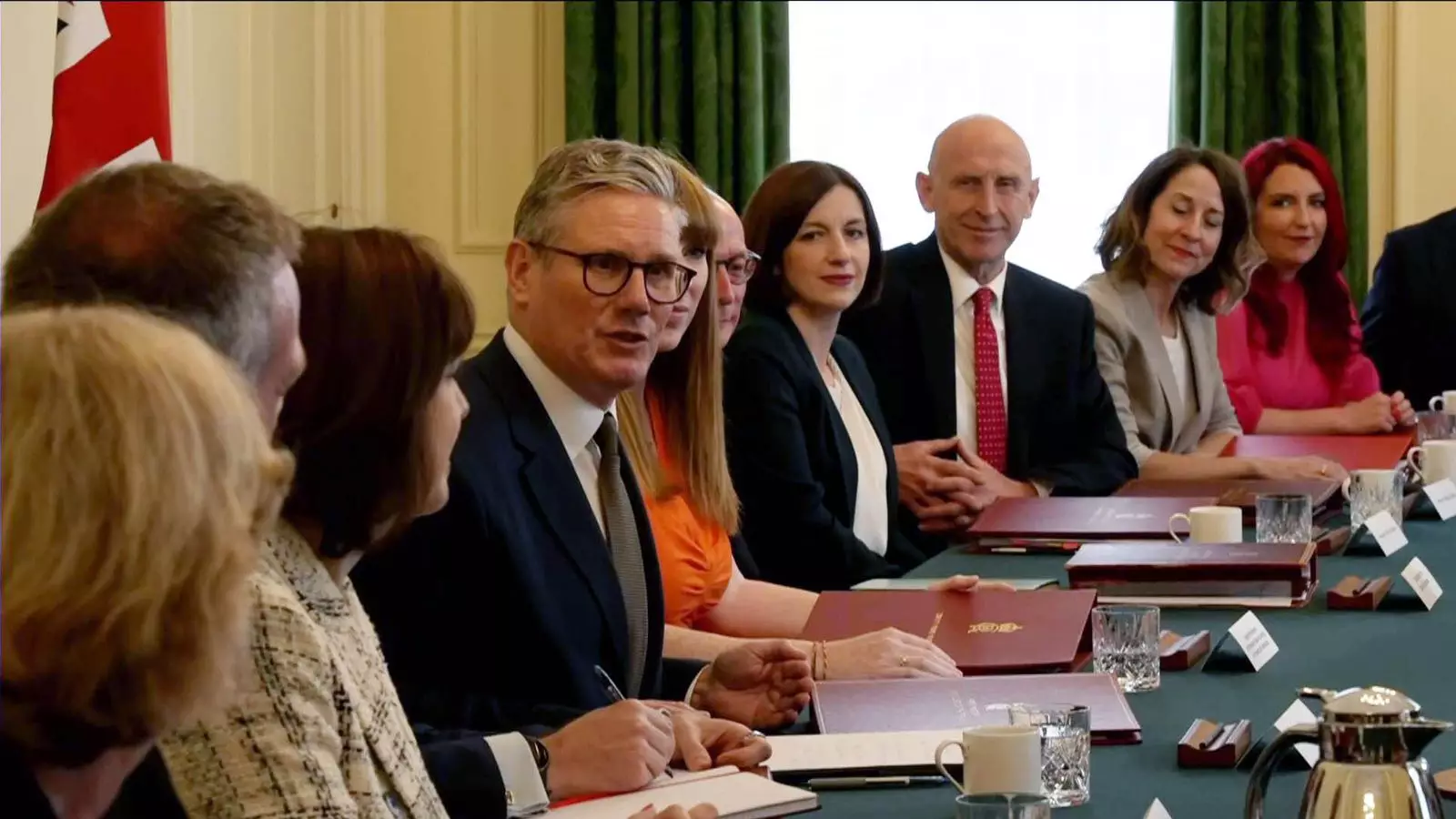The recent landslide victory for the Labour Party marks a significant turning point in UK politics, ending a 14-year period of Conservative leadership. With Sir Keir Starmer at the helm as the new Prime Minister, expectations are high as he convenes his inaugural cabinet meeting. This event represents not just a change in personnel but embodies a shift in political direction that has the potential to reshape the nation’s landscape. Appointed late last week, Starmer has assembled a cabinet filled with familiar faces but also introduced some notable new appointments, indicating a blend of continuity and refreshment in governance.
Among the key figures in his cabinet are prominent members like Chancellor Rachel Reeves and Home Secretary Yvette Cooper, who have been central to Labour’s strategy and messaging over the years. While Starmer chose to retain many existing members, the notable shift came with the appointment of Richard Hermer KC as Attorney General, a departure from the previous holder of the shadow role, Emily Thornberry. This decision underscores Starmer’s commitment to legal expertise in a time rife with complex challenges, indicating a strategic move to inject fresh legal acumen into his administration.
The cabinet’s agenda will be heavily influenced by the Labour manifesto, which lays out six initial priorities. These priorities—economic stability, NHS improvement, border security enhancement, energy independence through Great British Energy, tackling anti-social behavior, and expanding the teaching workforce—reflect a comprehensive approach to governance. The overwhelming vote in favor of Labour signals a public demand for these changes, and Starmer’s cabinet will be under pressure to act swiftly and decisively to fulfill these promises to the electorate.
Starmer’s administration faces a plethora of pressing issues from the outset. With NHS waiting lists ballooning to 6.33 million patients, persistent economic stagnation, and the ongoing crisis surrounding small boat crossings in the Channel, the government’s immediate focus is crucial. Additionally, the current struggles within the penal system add layers of complexity that need addressing. Failure to effectively tackle these issues could quickly erode public confidence, making timely action essential.
Shortly after assuming office, Starmer will engage with global leaders during the NATO summit in Washington, D.C., asserting his presence on the international stage. Following that, he will also host the European Political Community summit in the UK. This showcases a determination to reinvigorate the UK’s role in global conversations, a critical factor considering the post-Brexit context the country finds itself navigating.
In his initial address from the iconic steps of Downing Street, Starmer emphasized a profound commitment to public service, stating that his government is there to “serve you.” This highlights a renewed focus on the electorate, aspiring to shift the perception of politics toward a more benevolent force in society. His assertion of prioritizing family time by halting work at 6 PM on Fridays signals a personal touch that could resonate with many voters, reminding them that their leaders too juggle professional and personal lives.
As Labour under Sir Keir Starmer embarks on this new chapter, the expectations are high and the scrutiny intense. The upcoming weeks and months will serve as litmus tests for the government’s resilience and ability to address the multifaceted challenges ahead while remaining committed to the promises made to the populace. The task before Starmer is monumental, but the public’s clear choice for change signals both opportunity and obligation for delivering a renewed vision for Britain.


Leave a Reply